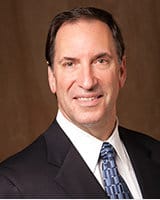
There has been a great deal of discussion over the years about dental practice price, but very little has been said about practice value. It is especially important that practice buyers understand these terms and be able to differentiate between them, since practice value has significantly more impact upon the futures of buyers than does practice price.
Price is the consideration (cash, note, barter, etc.) paid to a seller to acquire an asset. Sellers receive price. Value is the benefit received by the buyer from the use and ownership of the acquired asset. Buyers receive value.
All too frequently buyers zero in on price as the primary practice purchase issue while ignoring the issue of value. However, buyers stand to benefit much more by receiving high value than by paying a low price, since the primary practice value is actually the net income the buyer takes home from the purchased practice.
I illustrate this point by asking buyers to consider two similar practices. Practice A grosses $400,000 and is priced at $275,000. I ask buyers if this is a good deal. Most buyers admit they do not know.
Then we look at Practice B which grosses $400,000, of which the hygienist produces $100,000 and the buyer produces $300,000. After paying all of the overhead expenses and all of the purchase payments, the buyer will have a net income of $140,000. Without even knowing the price, most buyers believe that Practice B is a good opportunity. Knowing the price and gross alone does not make for a well-informed decision. Knowing the cash flow-derived value, or net income, received in return for the amount of work performed by the buyer, does allow for a well-informed decision.
Consider Practice C which grosses $400,000 and is priced at $300,000. After paying all the practice overhead expenses and all of the purchase payments, the buyer will receive value, or net income, of $150,000. Now examine Practice D, which is very similar to Practice C. It also grosses $400,000, but is priced at $250,000. After paying all the practice overhead expenses and purchase payments, the buyer will receive value, or net income, of only $125,000. This comparison shows that it is actually possible to pay a higher price for a practice and still receive more value, or net income. Differences in fixed expenses, such as rental cost, can cause such differences. Which practice would you choose?
While we do not suggest overpaying for any practice, we do point out the old saying, "you get what you pay for". Since "what you pay for" is net income in the case of dental practices, higher priced practices will generally yield higher net incomes, even after paying the payments. In the case of purchasing a practice, it is often safer to pay slightly too much than too little.
We strongly suggest that if you are considering buying a practice and are seeking professional advice on price, be sure that you also receive a practice cash flow analysis to learn all of the important facts, especially the answers about practice value, the net income you will earn.

 Add me to your address book
Add me to your address book



